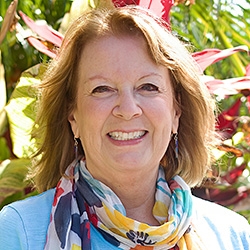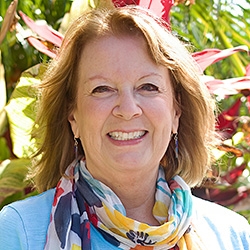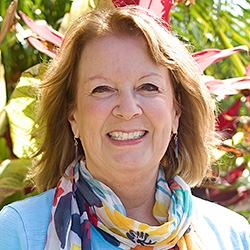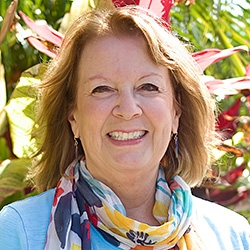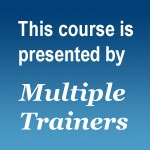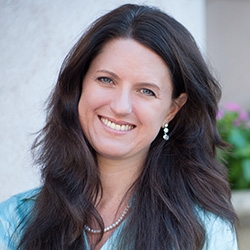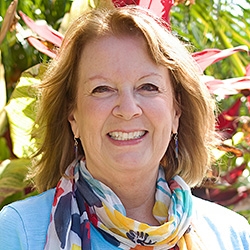

Search Results: ally
-
Trainer Tip: People tend to look, act, and sound softer when they have been more fully heard. If you're unsure whether someone has been heard and you want to be cautious, you may ask them, “Is there anything else you’d like me to hear?”. If you try to reason with or educate them before they're heard, they'll likely respond negatively. After they're heard, you may notice a willingness on their part to listen and proceed.
-
We typically think of certain words as feelings when they can be judgements (eg. “abandoned”). Hidden within evaluative/judgement words are true feelings and needs (eg. if we think we’re abandoned we may feel lonely or hurt, and want togetherness or belonging). With this handout discover more hidden feelings and needs within the judgements that sound like feelings. Then download the card deck to further practice and learn.
-
In this recorded telecourse, John Kinyon, world renowned CNVC Certified Trainer, offers an overview and practice with four elements of empathy – presence, understanding/meaning, need language and deepening into needs.
-
In this telecourse recording, you will learn and practice self-awareness skills to fine tune your attention to met needs; savoring feelings of well-being; expressing these feelings to others; and receiving other people's messages of joy, gratitude, inspiration and more!
-
We all love to contribute to others’ lives. We love to offer support because it meets our own needs for contribution, love, caring, and making a difference. For today, admit that you love to support other people, and that you would like support yourself. Let at least one person contribute to your life today. Read on for a related story.
-
Trainer Tip: Sometimes when we look to fix someone's problems we think we're doing it to make them feel better, but in reality we are uncomfortable and we want to feel better. Instead of assuming you know what their problem is or what they need, listen deeply. Your listening presence can bring relief to the both of you and provide additional opportunities for healing. And along the way they may find their own way to a solution.
-
Gregg Kendrick and Marie Miyashiro share the importance of nonviolent communication and needs awareness at multiple levels of organizational structure —individual, interpersonal, and organizational.
-
Rita Herzog shares how to stay true to your needs while extending empathy in family relationships.
-
Join Kathleen for a gentle, compassionate exploration and embracing of your true self. Reclaim your self-worth, experience greater freedom when expressing your self and actually celebrate who you are in the world. Delve into what self-love is and is not – including how to distinguish self-worth from negative cultural labels such as self-obsession and selfishness.
-
Trainer Tip: Sometimes the expression of our needs can sound like demands or criticism. This can make it harder for people to want to contribute to us. Today, pay attention to how you express your needs. Find ways to release the emotional charge.
-
Mismanaged emotional pain can compound and hurt ourselves and others. Four ways we can mismanage pain are: denial, blame, depression, and escape/numbing. This can result in hatred, resentment, discrimination, revenge, anger, and more problems. The fifth way we can deal with pain is to confront the pain acknowledging it and dealing with our unmet needs. This is a more direct path. Read on for more ideas for how to handle the pain.
-
Ask the Trainer: "Fairness" isn't on the needs list. What needs might be underneath it?
-
What's the real reason you choose to talk about something or not? "Privacy" can become a misplaced label that's used to hide harmful behaviour. Secrets typically come from reactivity -- and can carry shame, fear or threat of harm, and take a toll. And yet, if something private gets mislabeled as a "secret" it can also trigger shame and fear. The key to all this may be in relating to privacy from a place of clear differentiation, boundaries, agency, care and discernment.
-
This chart helps translate words that imply blame into true feelings and unmet needs.
-
What is it that enables us to thrive? How can we influence our capacity to live a meaningful and fulfilling life? Join Jim and Jori Manske in this exciting telecourse recording on the intersection of NVC and cutting-edge Positive Psychology, the science of human thriving.
-
Join Susan Skye as she guides you to experience profound transformation of the inner jackal messages resulting from childhood trauma. Discover how the limbic system of the brain works, and transform jackal messages stored there with compassionate connection.
-
John Kinyon and Matthew Rich examine the ways in which people’s worldviews can be different and why this often creates conflict.
-
We can't alone (nor with lone communities) transform the hidden structures of violence and domination. Dialogue alone isn't disruptive enough. We can easily be in dialogue with Trump supporters while the planet burns up, millions are still hungry, and we go extinct. NVC seriously risks reinforcing vast inequities and abuses if we're not radically engaging systemic constraints, and impacts of our choices that go beyond our immediate circle. Read on for ways to leverage NVC practices to expand true social change.
-
Yvette Erasmus shares her interpretation of the difference between "faux" feelings and feelings. "Faux" feelings imply that someone is doing something to you and generally connote wrongness or blame.
-
This holiday, shift your focus from what disappoints you to the true whisperings of your heart. Compassion is an inside-outside process. In this telecourse recording, you will experience four simple tools for savoring your own precious needs, allowing you to experience greater compassion and harmony this holiday.

Quick Links
Subscription Preferences
Stay In Touch!
Looking for ways to keep up with NVC Academy news, get special offers, free resources, or words of inspiration? Here are five ways to stay engaged:

